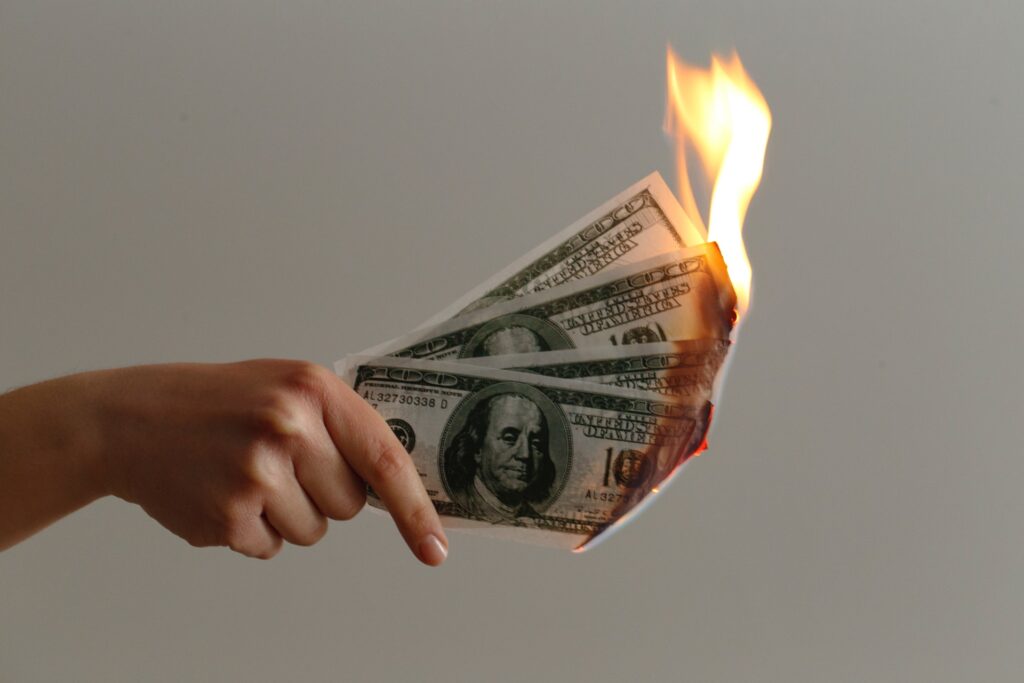How stereotypes prevent us from sorting out our finances
Creative and financial ability need not be mutually exclusive. The pervasive idea that if you are creative, you are bad with money, yet those with the artistic sentiment of a doorstop naturally have a handle on their finances, is a harmful cliche.
Image credit (above): Jp Valery on Unsplash
I saw the above quote referenced in MoneyWeek the other day and, while amusing, it also struck me as a perfect encapsulation of the creative industries’ self-defeating mindset around money. We’ve all been guilty of it at some point, myself included. ‘I’ve never been good with numbers, I just draw pictures…’ ‘Pension? I can’t afford dinner…’ etc.
‘Natural talent’ is just a starting point – it is how we develop our craft that really helps us succeed. The same is true of our financial ability

We love the idea of ‘natural ability’ defining the destinies of the great and good. It allows us to buy-in to a bit of real life magic and marvel at humanity’s shared prowess. However, it also offers us a handy excuse for our own shortcomings – a get-out clause that says, ‘If we’re not born with it, we can’t do it… So I won’t try.’
My experiences in interviewing musicians and other creative types for the last 15 years have taught me that whenever we discuss ‘natural ability’ there’s a bigger picture being missed.
Take two famous examples of ‘natural talent’: Daniel Day Lewis and Jimi Hendrix.
Day Lewis made his big screen debut aged 14 in Sunday Bloody Sunday, which is undeniably impressive. However, he spent another 13 years studying and developing his craft on theatre stages before he landed his first major film role.
Hendrix? Hendrix really was an amazing guitarist, but he practised so much he wore his guitar while cooking. And on the toilet.
Whether we’re talking theatre or fashion design, ‘natural talent’ is just a starting point – it is how we develop our craft that really helps us succeed. The same is true of our financial ability. You are not inherently ‘bad with money’.
It’s not all or nothing
In the site’s first post, I discussed the stigma of talking about money in the creative industries, but also how harmful it is to view these two aspects of our lives – the creative and financial – as the antithesis of each other.
Instead, we should consider both our creative and financial abilities as different but complementary skills – both building blocks for the attainment of lasting happiness. In that sense, the most important question to answer is, ‘How can we sustain our ability to do the things we love?’
If you are making your way in these industries, you very likely already have the creativity and the drive required to figure this stuff out

In trying to solve this problem, learning to handle our finances can really help. The good news is that if you are making your way in these industries, you very likely already have the creativity and the drive required to figure this stuff out.
That might involve honing what you do to the point where you earn more money doing it; figuring out how to syphon off income when you have it, ready for the times when you don’t; or making a smart move to a more affordable location. The more you start to think about it, the more solutions you will find.
Everyone can do something to get nearer to their, er, happy place. And you’re not alone, either. The more ideas, options and resources we share here, the easier that process is going to get, so if you have questions or suggestions, don’t hesitate to get in touch. I don’t have all the answers, but we have a better chance of finding them as a community.
Most importantly, though, do not let yourself fall in to the belief that because your work is creative, you are destined to be bad with money, or that it is hopeless to try. If anything the reverse is true, you’re likely already better with it than most of your peers, because you often have to manage on less – and you’re certainly better equipped to work around your limitations.
If you can come up with ideas for your creative work – be it scriptwriting, or sculpture – why not redirect just a little of that energy to thinking creatively about how you could make this thing last? Can you be creative with money?

